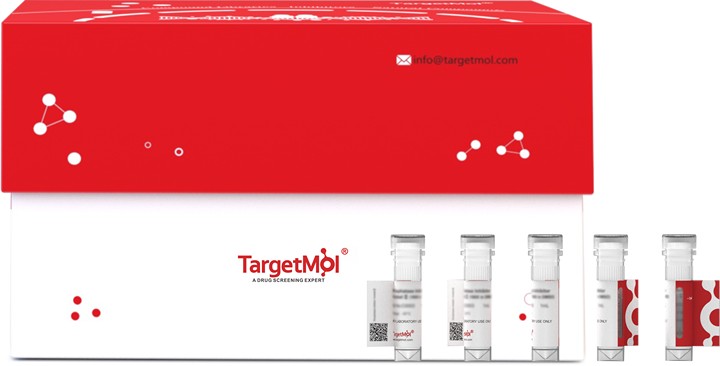Shopping Cart
- Remove All
 Your shopping cart is currently empty
Your shopping cart is currently empty

Thiol protease involved in osteoclastic bone resorption. Displays potent endoprotease activity against fibrinogen at acid pH. May play an important role in extracellular matrix degradation. Involved in the release of thyroid hormone thyroxine (T4) by limited proteolysis of TG/thyroglobulin in the thyroid follicle lumen. Cathepsin K Protein, Mouse, Recombinant (His) is expressed in E. coli expression system with N-6xHis tag. The predicted molecular weight is 27.4 kDa and the accession number is P55097.

| Pack Size | Price | Availability | Quantity |
|---|---|---|---|
| 20 μg | $284 | 20 days | |
| 100 μg | $590 | In Stock | |
| 1 mg | $2,530 | 20 days |
| Biological Activity | Activity has not been tested. It is theoretically active, but we cannot guarantee it. If you require protein activity, we recommend choosing the eukaryotic expression version first. |
| Description | Thiol protease involved in osteoclastic bone resorption. Displays potent endoprotease activity against fibrinogen at acid pH. May play an important role in extracellular matrix degradation. Involved in the release of thyroid hormone thyroxine (T4) by limited proteolysis of TG/thyroglobulin in the thyroid follicle lumen. Cathepsin K Protein, Mouse, Recombinant (His) is expressed in E. coli expression system with N-6xHis tag. The predicted molecular weight is 27.4 kDa and the accession number is P55097. |
| Species | Mouse |
| Expression System | E. coli |
| Tag | N-6xHis |
| Accession Number | P55097 |
| Synonyms | CTSO2,CTSO,CTSK,Cathepsin X,Cathepsin O2,Cathepsin O,Cathepsin K |
| Amino Acid | VPDSIDYRKKGYVTPVKNQGQCGSCWAFSSAGALEGQLKKKTGKLLALSPQNLVDCVTENYGCGGGYMTTAFQYVQQNGGIDSEDAYPYVGQDESCMYNATAKAAKCRGYREIPVGNEKALKRAVARVGPISVSIDASLASFQFYSRGVYYDENCDRDNVNHAVLVVGYGTQKGSKHWIIKNSWGESWGNKGYALLARNKNNACGITNMASFPKM |
| Construction | 115-329 aa |
| Protein Purity | > 90% as determined by SDS-PAGE. |
| Molecular Weight | 27.4 kDa (predicted) |
| Endotoxin | < 1.0 EU/μg of the protein as determined by the LAL method. |
| Formulation | Tris-based buffer, 50% glycerol |
| Reconstitution | A Certificate of Analysis (CoA) containing reconstitution instructions is included with the products. Please refer to the CoA for detailed information. |
| Stability & Storage | Lyophilized powders can be stably stored for over 12 months, while liquid products can be stored for 6-12 months at -80°C. For reconstituted protein solutions, the solution can be stored at -20°C to -80°C for at least 3 months. Please avoid multiple freeze-thaw cycles and store products in aliquots. |
| Shipping | In general, Lyophilized powders are shipping with blue ice. Solutions are shipping with dry ice. |
| Research Background | Thiol protease involved in osteoclastic bone resorption. Displays potent endoprotease activity against fibrinogen at acid pH. May play an important role in extracellular matrix degradation. Involved in the release of thyroid hormone thyroxine (T4) by limited proteolysis of TG/thyroglobulin in the thyroid follicle lumen. |

Copyright © 2015-2025 TargetMol Chemicals Inc. All Rights Reserved.